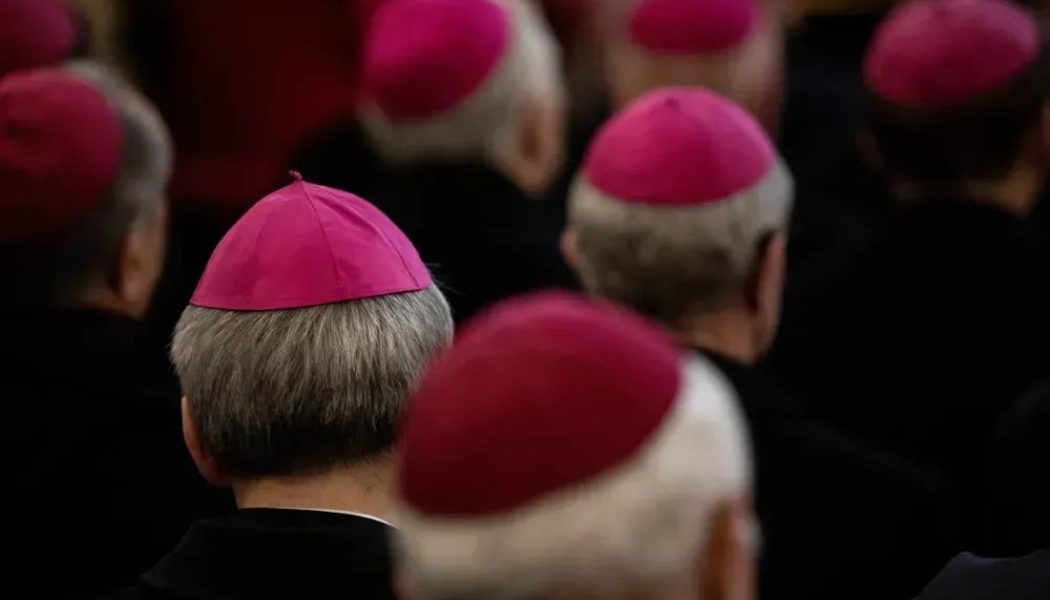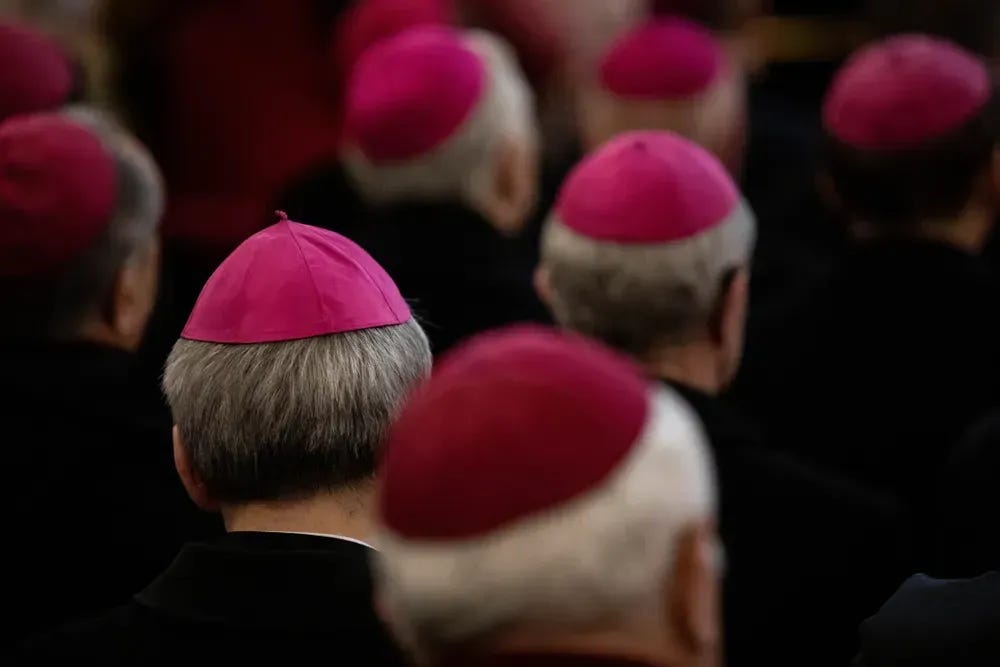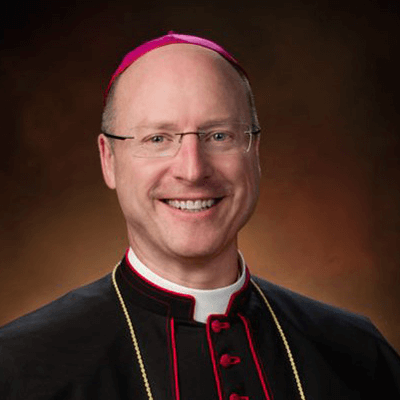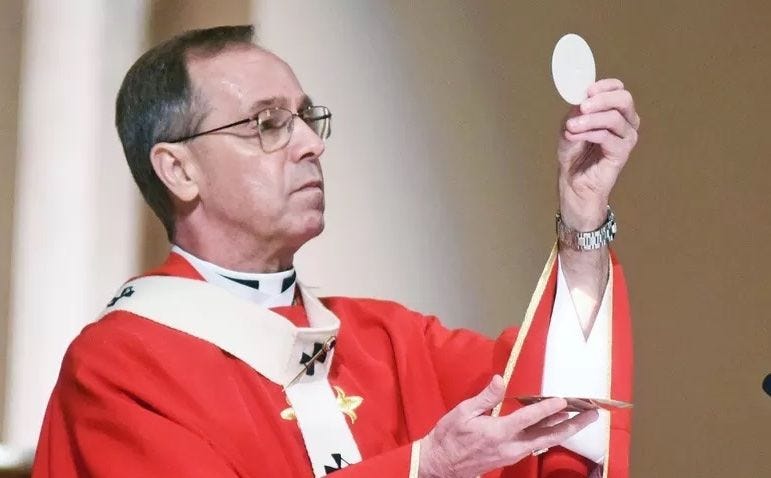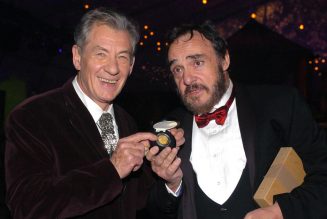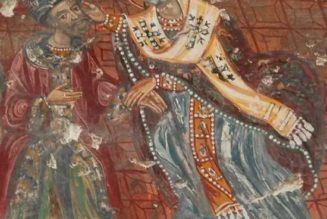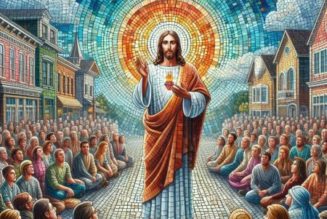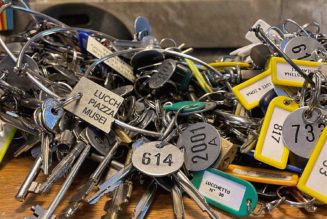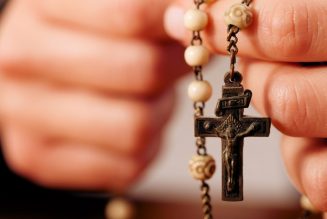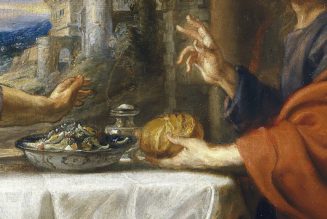When Archbishop George Lucas of Omaha turns 75 on Wednesday, he will be one of 10 U.S. metropolitan archbishops serving past the formal retirement age for diocesan bishops.
With Lucas’ birthday, nearly a third of America’s archdioceses will be led by an ordinary awaiting retirement — and three more metropolitan archbishops are due to turn 75 within a year’s time.
As presbyterates in Boston, Kansas City, Cincinnati, and elsewhere wait to hear who will next lead them, speculation about bishops likely to be promoted has become a frequent topic of conversation.
But with massive turnover among the metropolitans in the offing, who are some of the American bishops most likely to see themselves receiving an archbishop’s pallium?
The Pillar looks at five men possibly on the move.
Bishop Daniel Flores
Flores, 62, has led the diocese of Brownsville, Texas, for nearly 15 years, having been before that an auxiliary bishop of Detroit, and a priest of Corpus Christi. With a theology doctorate from the Angelicum and a reputation as a Thomist, Flores has been a diocesan chancellor, and a seminary professor.
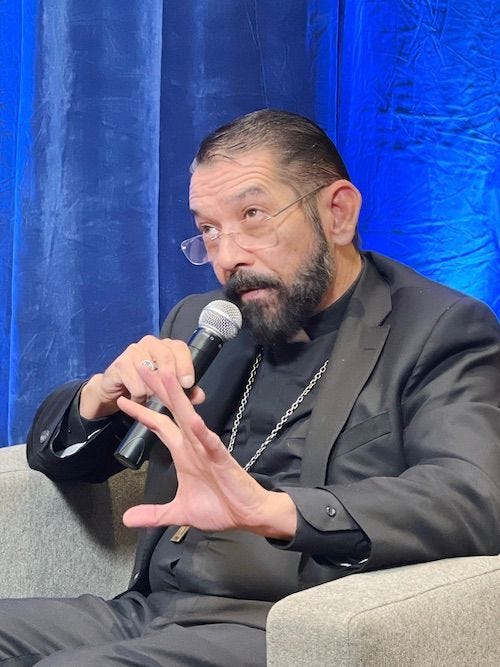
But his stature among American bishops has risen acutely in recent years, as Flores was elected chairman of the U.S. bishops’ committee on doctrine, and became the principal episcopal organizer — and a cogent spokesman — for the USCCB’s efforts on the synod on synodality.
Flores has also attracted attention because of the prominence of his see on America’s southern border, and the sometimes controversial humanitarian efforts of his Catholic Charities apostolates with migrants and refugees. But while that work has stirred up disagreement, it has also garnered attention from Pope Francis.
At the same time, Flores has been a visible part of the Church’s Eucharistic Revival initiative, serving as a board member of the nonprofit overseeing the Eucharistic Congress, and helping to launch from his diocese one route of the Eucharistic pilgrimages traversing the country this summer.
Because of the wide scope of his involvement in ecclesiastical affairs, and the widely-perceived independence of his thinking, the bishop has been frequently discussed as a likely candidate for a metropolitan see.
Given his Texas roots, and the Texas diocese he leads today, Flores is a strong candidate for eventual appointment to the Archdiocese of Houston-Galveston, where Cardinal Daniel DiNardo turned 75 last month, and has suffered some health problems since his 2019 stroke.
If that doesn’t happen, the bishop could end up back in Detroit, where Archbishop Allen Vigneron is already 75, and where Flores spent three years as an auxiliary.
Bishop Mark Seitz
Eight hundred miles west of Brownsville, but still at the U.S. border, is Bishop Mark Seitz, 70, who has led the Diocese of El Paso, Texas since 2013.
Ordained a priest of the Dallas diocese in 1980, Seitz was a professor at the University of Dallas, worked in seminary formation and as a pastor, and eventually became a Dallas auxiliary before heading to old El Paso.
Beginning with his 2017 pastoral letter, Seitz has become one of the most outspoken American bishops on immigration — he is now head of the bishops’ conference committee on the subject, and has found himself in a war of words with both the attorney general and governor of Texas, especially as he aims to defend the Church’s humanitarian assistance for migrants and refugees — including those who cross the border illegally.
In the summer of 2020, Seitz drew attention for joining in El Paso protests against racism, discrimination, and police brutality, especially when a photograph circulated of the bishop kneeling while holding a sign reading “Black Lives Matter.”
Seitz has also long been outspoken about the Catholic call to be “unambiguously pro-life, in support of the life of the unborn and every human being,” and has said that he has “knelt in prayer before abortion clinics regularly throughout my life.”
The El Paso diocese is a relatively large one, with nearly 700,000 Catholics, and Seitz has been several times praised by Pope Francis. In a recent CBS News interview, the pontiff described Seitz as a “great bishop,” while noting his work with migrants on the border.
With that kind of papal attention, Seitz remains for many observers in the conversation for a metropolitan see, even while he has only five years before he will need to submit a letter of resignation to Pope Francis.
Bishop Shawn McKnight
The 55-year-old bishop of Jefferson City, Missouri, has led a diocese of fewer than 100,000 Catholics since he was consecrated a bishop in 2018, at the relatively young age of 49.
A priest of the Wichita diocese, McKnight is formerly director of the USCCB’s Secretariat of Clergy, Consecrated Life and Vocations, and was a candidate to become USCCB general secretary in 2016.
While he was not elected by the U.S. bishops to that position, McKnight became a bishop less than two years later, and has generally been regarded as being close in recent years to an American bishop at the Vatican’s Dicastery for Bishops — Cardinal Blase Cupich, who was rector of the Josephinum while McKnight was a seminarian there.
McKnight, who has done scholarly work on the permanent diaconate, has also in recent years advocated for a U.S. implementation of the pope’s plan to create a more stable office for catechists, and has been characterized as a “bridge-builder” by National Catholic Reporter columnist Michael Sean Winters.
McKnight was defeated in a USCCB election last year to chair the national collections committee, but is mentioned often as a likely candidate for promotion to a bigger see, given his connections and frequent outspokenness at the bishops’ conference.
Bishop Mark O’Connell
The oldest serving diocesan bishop in the United States right now is Cardinal Sean O’Malley of Boston, who will turn 80 years old at the end of June, on the feast of St. Peter and Paul.
In Boston, and farther afield, there has been rampant speculation about who might replace O’Malley, in one of the most historically significant sees in American Catholicism — a diocese which is especially regarded by many Romans as particularly important in the landscape of the U.S. Church.
Among the most high profile names mentioned is Cardinal Robert McElroy, whom many Vatican-watchers have suggested will be eventually transferred from his San Diego diocese to a metropolitan see.
And while McElroy reportedly distanced himself from talk about Boston, Vatican sources have confirmed to The Pillar that Cardinals Blase Cupich and Donald Wuerl have both lobbied Pope Francis for McElroy make a move to Beantown — but it’s not yet clear that the Holy Father is actually inclined towards that move.
And while McElroy gets the press, some sources in Boston say the smart bet — albeit less flashy — could be on Bishop O’Connell, who has been a Boston auxiliary since 2016, and has been O’Malley vicar general and moderator of the curia since January 2023.
Unassuming, but quite capable, the bishop is a canon lawyer with both seminary and diocesan administration experience, as well as time served as a parish pastor. O’Connell is said to be well liked and respected by many in Boston’s presbyterate, and by O’Malley personally.
Whether he becomes Boston’s next archbishop — and whether Boston’s archbishop will continue becoming cardinals — remains to be seen.
But O’Connell, 59, is the sort of auxiliary who is likely to see some kind of move in the years to come — especially if he has O’Malley urging that he be given more responsibility.
Archbishop Charles Thompson
Archbishop Thompson, 63, is an accountant with a canon law degree, pastoral experience, and 13 years experience as a diocesan bishop.
This summer, Thompson will also play host to tens of thousands of Catholics, and hundreds of bishops, who will descend on the Archdiocese of Indianapolis for the Church’s National Eucharistic Congress (not to mention the Pillar live podcast extravaganza).
Thompson is not the bishop organizing National Eucharistic Congress, but as host, he’s worked on the organizing committee, and worked to get his own diocese prepared to roll out the welcome mat.
Those efforts are likely to be appreciated both by apostolic nuncio Cardinal Christophe Pierre, and by Thompson’s fellow bishops, who in 2022 elected the archbishop to chair the USCCB’s evangelization and catechesis committee.
A moderate when it comes to conference politics, Thompson has navigated complicated issues, seeing a religious liberty fight, with a heavy dose of Vatican involvement, come to his front door after he directed in 2017 three Catholic high schools not to renew the contracts of teachers who had entered same-sex marriages. One of those schools, Brebeuf Jesuit, appealed his decision, in a public dispute which has not yet been officially resolved.
But through all of that, Thompson has seemed to navigate a careful tightrope, without attracting the kind of profile which might put him out of favor in Rome, while holding the line in his diocese in key issues.
That skill set could be seen as an asset in the archdioceses where cardinals are now awaiting retirement.
Comments 42
Services Marketplace – Listings, Bookings & Reviews
